Table of Contents
In general, when someone experiences an acute occurrence of sharp pains or discomfort in the chest, the next thought that usually comes to mind is whether it is heartburn or a heart attack. The reality is that both feel almost the same. However, their sources, relevancies, as well as treatments, differ widely.
This article will explain the differences between heart attack and heartburn, what causes them, their symptoms, how to differentiate between the two, and what to do if you experience it or see someone going through it. Written in easy English to ensure anybody can comprehend it. Let’s jump in.
What Is Heart Attack?
Myocardial infarction is an episode on which the affected area of the heart loses its blood supply due to the occlusion of one of the vessels that supply blood to that area by a clot. It starts necrosing with time due to the lack of oxygen and blood to that part. It is a medical emergency only when treatment is delayed, and would result in death.
What Is Heartburn?
Heartburn is seldom anything to fret about; however, heartburn that occurs frequently or is very painful could have other implications. Research has shown that there does seem to be a connection between GERD and heart issues, especially when the heartburn symptoms turn chronic.
Those with chronic acid reflux most likely ought to undergo medical screening to evaluate other risk elements for the heart such as hypertension, cholesterol, and diabetes.
Causes of Heart Attack and Heartburn
Reasons for a Heart Attack:
- Clogged arteries: In many cases, this condition primarily results from the buildup of fat, cholesterol, and other substances.
- Clots: Blood clots can form in narrowed arteries, which can block blood flow.
- Coronary artery disease (CAD): The most prevalent cause.
- Extreme stress or physical exertion can sometimes precipitate it.
Causes of Heartburn:

- Spicy, oily, or sour foods
- Lying down after eating
- Overeating
- Drinks with alcohol, coffee, or carbonation
- Smoking
- Pregnancy (pressure on the stomach)
- Certain pain medications or blood pressure medications
Heart Attack Symptoms VS. Heartburn Symptoms
They’re easy to confuse and really they overlap the symptoms. Here is how you might tell them apart:
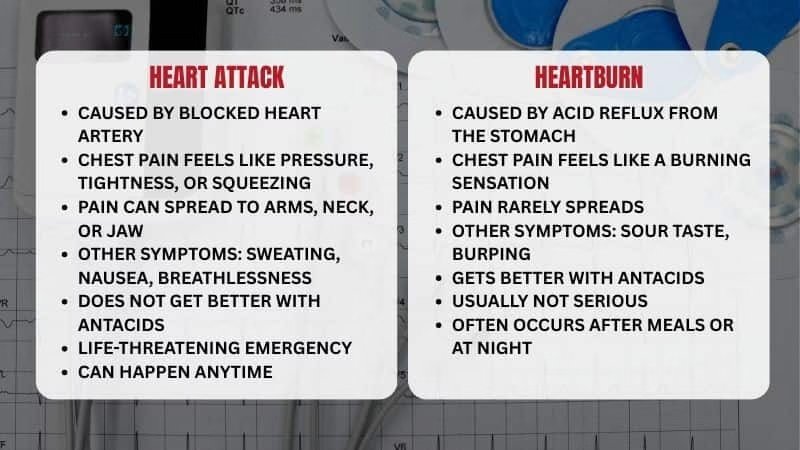
Symptoms Of A Heart Attack:
- Chest discomfort or tightness-you have what feels like a very heavy object sitting on top of your chest.
- Pain can occur in the arm, back, neck, jaw, or stomach depending on the source, or a pain between the neck and the jaw.
- Shortness of breath
- Cold sweat
- Nausea or vomiting
- Dizziness or faintness
- Fatigue (very tired)
👉 Important: These symptoms appear slowly or quickly. Some people do not have much pain, which is called a “silent” heart attack.
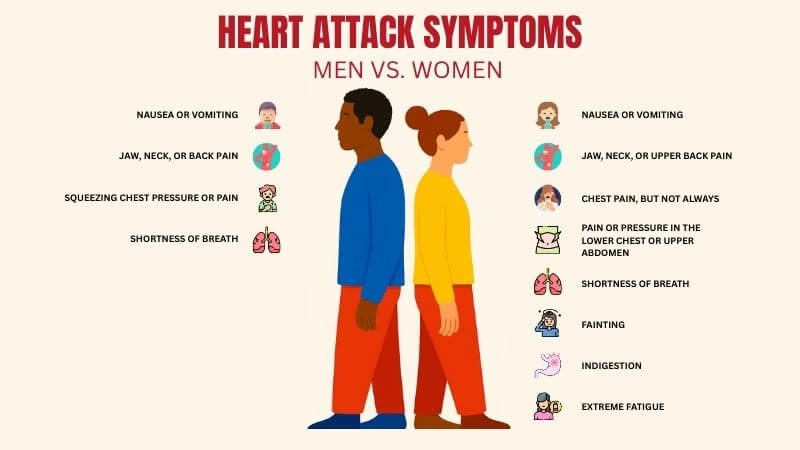
Symptoms of Heartburn:
- Chest pain like burning (generally after meals)
- Pain intensifies when lying or bending forward
- A taste in the mouth that’s bitter or sour
- Burping or feeling of fullness in the abdomen
- No arms or shoulders pain
- Tends to remit with antacids
Key Differences Between Heart Attack and Heartburn
| Feature | Heart Attack | Heartburn |
| Cause | Blocked heart artery | Acid reflux from stomach |
| Chest Pain | Pressure, tightness, squeezing | Burning feeling |
| Pain Spreads? | Yes (to arms, neck, jaw) | Rarely |
| Other Symptoms | Sweating, nausea, breathlessness | Sour taste, burping |
| Relief With Antacids? | No | Yes |
| Is It Serious? | Life-threatening | Usually not serious |
| Timing | Can happen anytime | Often after meals or at night |
How Do You Know Whether It Is A Heart Attack Or Heartburn?
Basic clues for knowing what’s going on are:
- Recollect the recent times: Did you eat a heavy meal? In this case, there are chances for heartburn.
- Character of pain: Heartburn feels burning, while a heart attack feels pressure/squeezing.
- Whatever pain goes: If radiation to arms, jaw, or back occurs, then it stands a higher chance of being a heart attack.
- Do antacids help? If yes, it’s probably heartburn.
- Cold sweats, nausea, and shortness of breath may indicate a heart attack.
- Is this a new or unusual pain for you? If yes, then seek help ASAP.
When in doubt, always view chest pain seriously. Better safe than sorry.
What To Do In An Emergency?
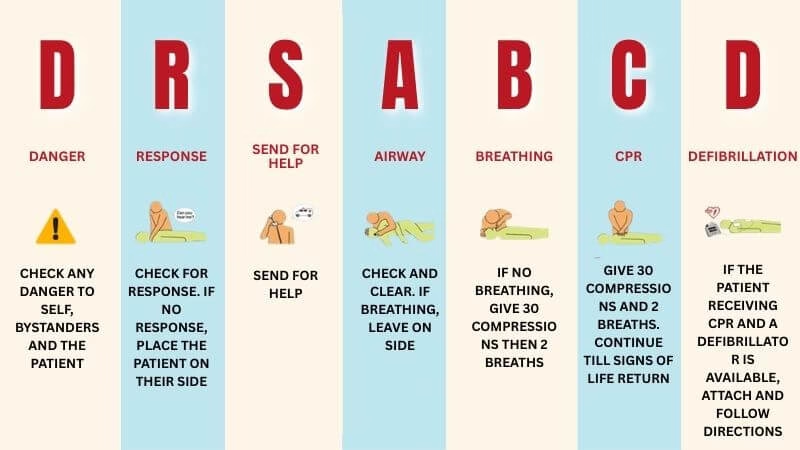
When Its A Heart Attack:
- Seek emergency medical assistance.
- Chew an aspirin if you have no allergy (it helps to thin the blood).
- Stay quiet and calm, and sit quietly.
- Do not drive yourself to the hospital.
During A Possible Heartburn:
- Take an antacid or acid reducer.
- Sit up or stand; don’t lie down.
- Drink water to wash down acid.
- Hold off from eating until it settles.
If the pain is not relieved after taking an antacid, or lasts for more than a few minutes, it can still be a heart attack: Have a doctor examine you.
What To Do If You See Someone Having A Heart Attack
- Fight for their life, do not waste any time; call for help, perhaps from friends or paramedics.
- Making the patient lie down or sit comfortably is beneficial.
- All tight clothing must be loosened.
- Ask the patient if he/she is on any heart medications, and help the person take them.
- Encourage aspirin chewing, unless he/she is allergic to it.
- If he/she should collapse and not breathe, then CPR must be performed, aggressively pushing down in the center of the chest.
- Stay with the person; never leave them alone in case you are calling for help.
What To Do If Someone Has Heartburn
- Set them up into position with the back straight.
- Offer hydration or an antacid if they have one.
- Avoid giving spicy or heavy food.
- Keep them calm, since stress may aggravate the scenario.
If the symptoms get worse or don’t leave, get them to see a doctor.
When To See A Doctor?
- Unrelenting chest pain
- Chest pain with difficulty breathing
- Unusually newly developing symptoms
- Heartburn that has occurred more than twice a week
- Difficulty swallowing or losing weight and has heartburn
- You are uncertain whether this is heartburn or chest shortage due to the heart attack.
Can You Have Both at the Same Time?
Yes, it is possible. Certain people tend to suffer from acid reflux as well as heart diseases. In such cases, one condition might mask the perception of the other condition.
Be sure to talk to your doctor for concerns over persistent chest discomfort even when you attribute it to mere heartburn.
Prevention Tips
Preventing Heart Attacks:
- Eat a healthy, balanced diet (low in saturated fats and salt)
- Exercise regularly
- Quit smoking
- Keep your cholesterol and blood pressure under control
- Manage stress
- Get regular check-ups
Preventing Heartburn:
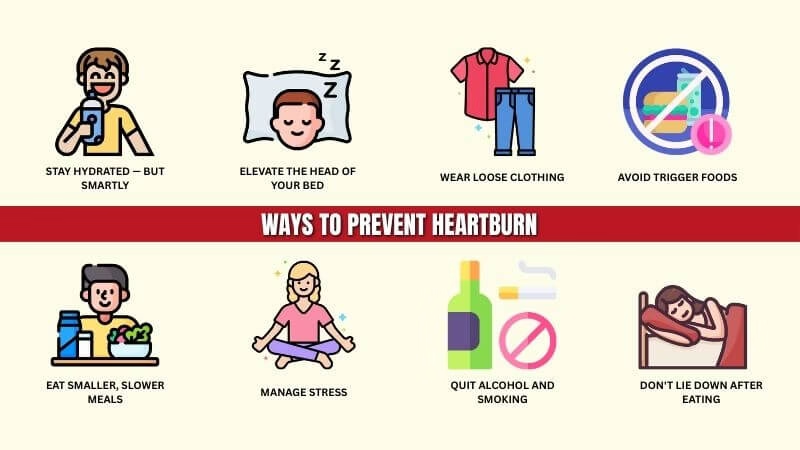
- Avoid trigger foods (spicy, fatty, acidic)
- Eat smaller meals
- Don’t lie down right after eating
- Raise the head of your bed if you get heartburn at night
- Lose weight if needed
- Avoid tight clothes around the belly
Can Anxiety or Stress Cause Symptoms like Heart Attack or Heartburn?
It can be postulated that symptoms or occurrences which can presage a stroke of coronary artery disease (CAD) or heart attack may have a connection to stress and anxiety. When they are present, the chest also aches, with associated sweating and palpitations, and possible difficulty in breathing-all indicative of a heart attack. Fear brings forth symptoms resembling those caused by stomach acid, prompting and later leading to some kind of acid flux and hence heartburn.
However, that does not mean to ignore any chest pain thinking it is just stress; leave that to your doctor. Relaxation methods like breathing and meditation, combined with some sleep, would ease heartburn and offset the risks of heart diseases.
Gender Differences: Do Men nd Women Experience Heart Attacks or Heartburn Differently?
Yes! There are differences in the symptoms of heart attack between men and women. Men might complain of the same chest pain radiating to the arm. But for females, symptoms related to heart aches usually present as nausea, pain in the back or jaw, light-headedness, or extreme fatigue with little or no pain in the chest.
Although the sensation of heartburn is similar in both genders, it is often exacerbated in pregnant women due to hormonal changes and pressure placed on the stomach by the pregnancy process.
How Doctors Diagnose a Heart Attack and Heartburn?
Doctors use different tools to find out what’s going on:
For Heart Attack:
- Electrocardiogram (ECG or EKG): Measures heart’s electrical activity
- Blood tests: Look for enzymes released by damaged heart muscle
- Chest X-ray or Echocardiogram
- Coronary angiogram: Checks for blocked arteries
For Heartburn:
- Endoscopy: Looks at the esophagus and stomach
- pH test: Measures acid levels in the food pipe
- Barium swallow test
- Symptom tracking and response to antacids
Can Heartburn Be a Warning Sign of Heart Disease?
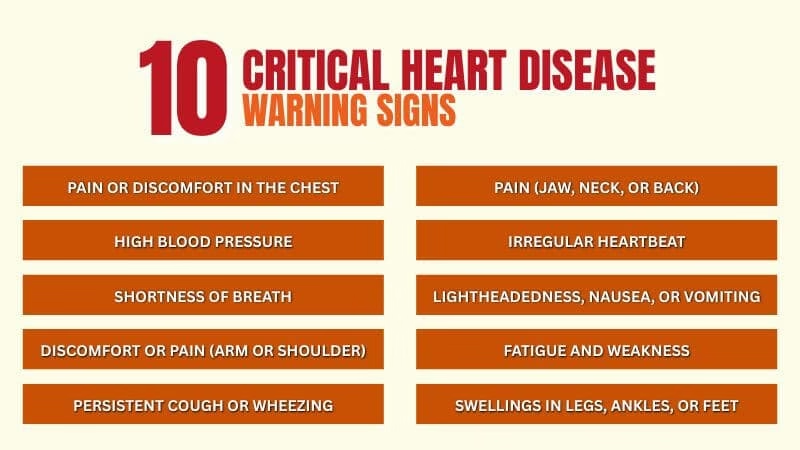
It is completely normal to have infrequent heartburn, and it is not typically something to worry about unless it is chronic or troublesome. The medical literature has also shown that heartburn affects individuals more than their heart disease, so GERD can be seen as a particular symptom with respect to a heart problem itself, more so if they could be needing each other with chronic symptoms and episodic relapse. The person with chronic acid reflux, or GERD, would typically be advised to see a doctor about that, to evaluate risk factors to heart disease, including hypertension, lipid levels, diabetes, etc.
Medications Used: Heart Attack VS. Heartburn
Here’s a quick look at what kind of medications are used for each condition:
Heart Attack
- Aspirin
- Blood thinners (like heparin)
- Nitroglycerin
- Beta blockers
- Statins
- Surgery or stents in severe cases
Heartburn
- Antacids (e.g., Tums, Rolaids)
- H2 blockers (e.g., ranitidine, famotidine)
- Proton pump inhibitors (PPIs) (e.g., omeprazole, pantoprazole)
- Lifestyle changes
Natural Remedies for Heartburn Relief (Not for Heart Attacks!)
Here are some natural treatments that can save someone from heartburn but should not be used to help with heart attacks.
- Aloe vera juice; soothes the esophagus
- Mix baking soda in water-it will neutralize acid (use occasionally)
- Chewing gum- increases saliva and reduces acid
- Licorice root or slippery elm- Provides a coating in the throat
- Ginger tea- aids digestion
⚠️ Again, never rely on natural remedies for chest pain if you suspect a heart attack. Always seek emergency help.
Myths and Misunderstandings
Let’s bust a few myths:
❌ “If the pain goes away, it was not a heart attack.” → Some heart attacks may go away for a spell and then come back.
❌ “Young people don’t have heart attacks.” → They can, especially when poor lifestyle habits are in place.
❌ “It’s just gas.” → Don’t guess; get checked.
❌ “Heartburn is nothing.” → Chronic acid reflux can damage the esophagus.
Quick Checklist: Is It Heartburn or Heart Attack?
Here’s a handy yes/no checklist your readers can use:
| Question | Heartburn? | Heart Attack? |
| Burning feeling after meals? | ✅ | ❌ |
| Pain goes away with antacids? | ✅ | ❌ |
| Spreads to arms, jaw, or back? | ❌ | ✅ |
| You’re short of breath, sweaty, or dizzy? | ❌ | ✅ |
| Happens after spicy food or lying down? | ✅ | ❌ |
Final Thoughts
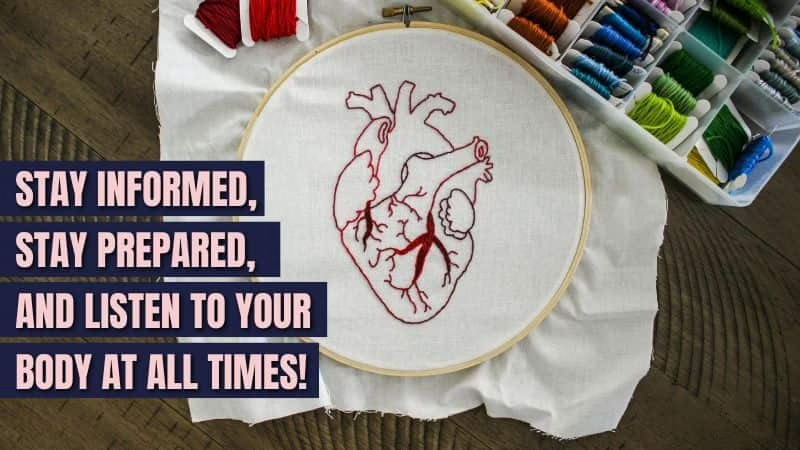
Heart attacks and heartburn can feel the same, but they are as far apart as possible. A heart attack is a deadly, imminently life-threatening emergency. Heartburn rather discomforting but, usually, not dangerous when compared to a heart attack. Knowing this difference can save your life or another.
You should act quickly and seek medical attention when in doubt. In no case is chest pain something to take lightly. Knowing basic first aid and CPR can indeed make one a lifesaver even if one isn’t directly involved when bystanders experience a heart attack.
Summary Table
| Topic | Heart Attack | Heartburn |
| Seriousness | Life-threatening | Usually mild |
| Pain Type | Pressure, squeezing | Burning |
| Location | Chest, may spread to arms/jaw/back | Chest or throat |
| Relief | Not relieved by antacids | Often relieved by antacids |
| Time | Can occur any time | Often after meals |
| Other Symptoms | Nausea, cold sweat, shortness of breath | Sour taste, burping |
| Emergency? | Yes, always | Not usually |
Stay informed, stay prepared, and listen to your body at all times. Heeding the signs can really make the difference between life and death.
Check out more interesting and informative Blogs!
Love our Content? Follow Us on Instagram!

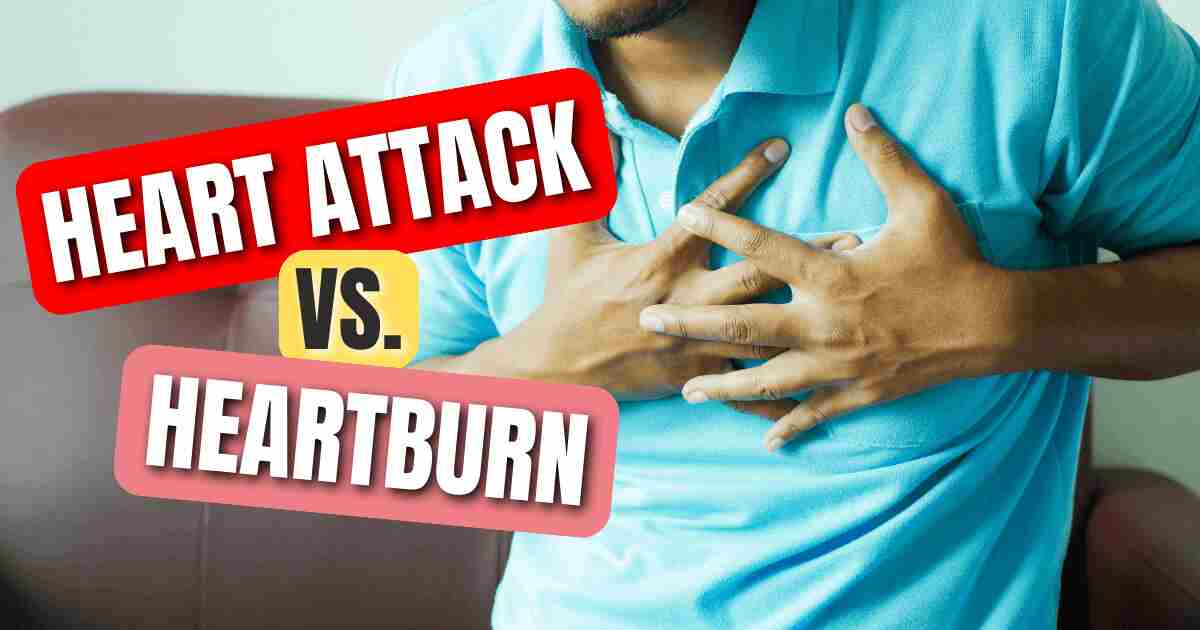
1 thought on “Heart Attack vs. Heartburn: 12 Critical Differences, Symptoms & Emergency Tips You Should Never Ignore”